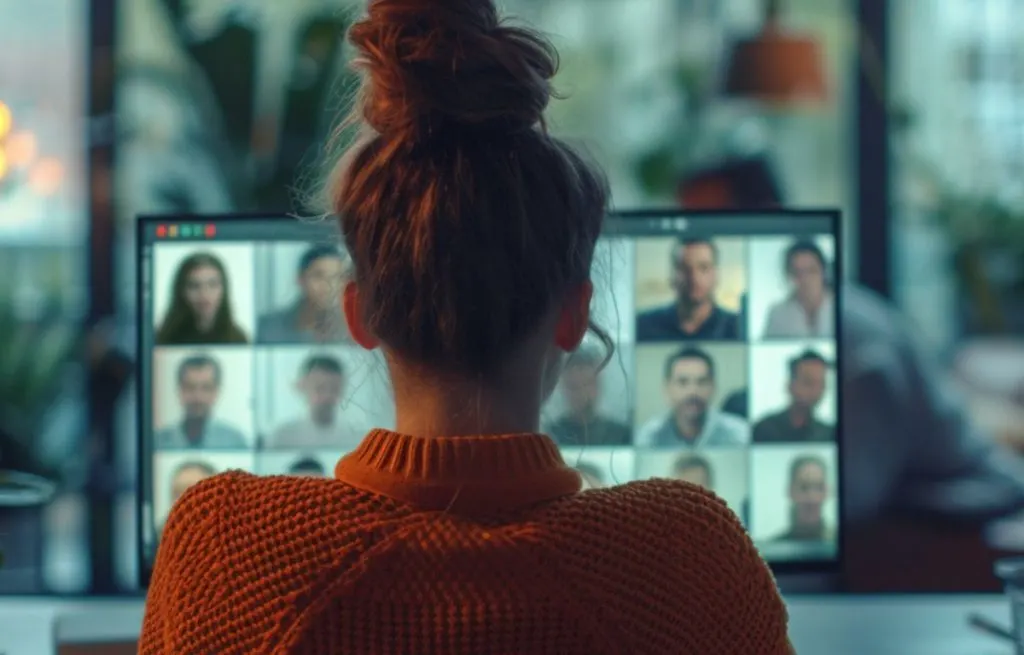Empaths, known for their heightened ability to sense and absorb the emotions of others, often experience the digital world differently from those around them.
This unique sensitivity impacts their interactions with technology, from simple texting to the overwhelming nature of social media platforms.
While it might seem that empaths would shy away from the digital realm, many find surprising ways to adapt and thrive.
Technological advancements bring a mix of challenges and advantages for empaths.
Understanding the nuances of this experience offers valuable insight into the relationship between empathy and the modern world's tech-driven communication.
1. Empaths Often Experience Screen Fatigue Quickly
Empaths are highly sensitive to their surroundings, and this sensitivity extends to their interactions with technology.
Screen fatigue, or eye strain, occurs from prolonged screen use and can manifest quicker in empaths due to their heightened sensory input processing.
Here are the key reasons:
- Sensitivity to Light: Empaths may find the blue light emitted from screens particularly harsh.
- Emotional Drain: Interpreting and responding to emotional content online can be exhausting for empaths.
| Aspect | Impact on Empaths |
|---|---|
| Brightness Levels | Higher sensitivity to intense lighting |
| Refresh Rates | Prone to discomfort from flickering |
They also tend to be more affected by the visual and cognitive load of multitasking on digital platforms.
- Need for Breaks: Small, frequent breaks are crucial for empaths to recharge.
- Environment Adjustment: Dimming lights and using screen filters can help mitigate fatigue.
Empaths benefit from tailoring their tech use to account for their sensory preferences, often resulting in a more mindful and balanced interaction with digital devices.
Related post: Unveil the exceptional traits that set empaths apart in this guide on the rare superpowers all empaths have.
2. High Sensitivity to Electronic Devices' Emissions
Empaths may experience heightened sensitivity to the emissions of electronic devices, such as electromagnetic fields (EMFs) from phones or computers.
It is suggested that they might be more prone to feeling overwhelmed in areas with intense electronic activity.
- Effects on Empaths:
- Discomfort: Feeling of unease or agitation near active electronics.
- Fatigue: Increased tiredness with prolonged exposure to devices.
- Headaches: Potential for headaches in high EMF environments.
Research into this phenomenon is ongoing, and the understanding of the interactions between EMFs and human sensitivity continues to develop.
Empaths should consider the layout of their electronic devices and might benefit from periodic digital detoxes to alleviate potential discomfort.
3. Prefer Personal Interactions Over Digital Communication

Empaths often find digital communication less satisfying than face-to-face interactions.
They value the nuances of non-verbal cues like gestures, facial expressions, and eye contact, which are usually lost in text messages or emails.
Personal interactions allow them to utilize their heightened sensitivity to others’ emotions, fostering deeper connections.
In contrast, technology-based communication can seem impersonal to empaths.
They may struggle with the lack of emotional context in digital exchanges, leaving room for misunderstandings.
Consequently, they tend to reserve important conversations for in-person meetings where they can fully engage and respond to the emotional atmosphere.
Empaths typically find that personal interactions enrich their experience of connecting with others.
At the same time, digital platforms may serve as a secondary option for maintaining those connections when physical presence isn't possible.
Related post: Delve into the extraordinary world of empathy with this guide on the powerful abilities of empaths.
4. Greater Impact from Negative Online Content
Empaths, by their nature, may experience a heightened emotional response to negative content they encounter online.
Their sensitivity often means they can find themselves more affected by harsh comments, cyberbullying, or distressing news.
Common Reactions:
- Feelings of sadness or anger
- Increased levels of stress
- Potential withdrawal from online spaces
They may also carry the emotional weight of these negative experiences longer than others, finding it hard to simply ‘scroll past' upsetting material.
Protective Measures Empaths Take:
- Curating their social media feeds to reduce exposure
- Engaging in online communities that promote positivity
- Limiting time spent on certain platforms
Despite these steps, the pervasive nature of digital communication can make it difficult to fully avoid negative content, thus impacting empaths significantly.
5. Inclined to Use Technology for Helping Others
Empaths often utilize technology to extend their innate compassion and support to a broader audience.
They are adept at leveraging social media platforms to raise awareness for various causes and injustices, rallying like-minded individuals to join their quests for change.
Communications: Empaths use email and messaging apps to provide emotional support to those in need, often displaying a preference for platforms that offer privacy and the ability to connect with individuals deeply.
- Networking: They excel at creating online communities, using forums and social networking sites to offer a safe space for sharing and personal growth.
Additionally, empaths are drawn to crowdfunding efforts where transparent technology allows them to aid individuals or groups directly.
Their contributions are not always monetary; many also offer their time and skills, coaching others through virtual means to foster emotional well-being.
Alan is the founder of Subconscious Servant. He has a passion for learning about topics such as spirituality and the metaphysical world. The thing he loves to explore most though is manifesting with the law of attraction ✨.

